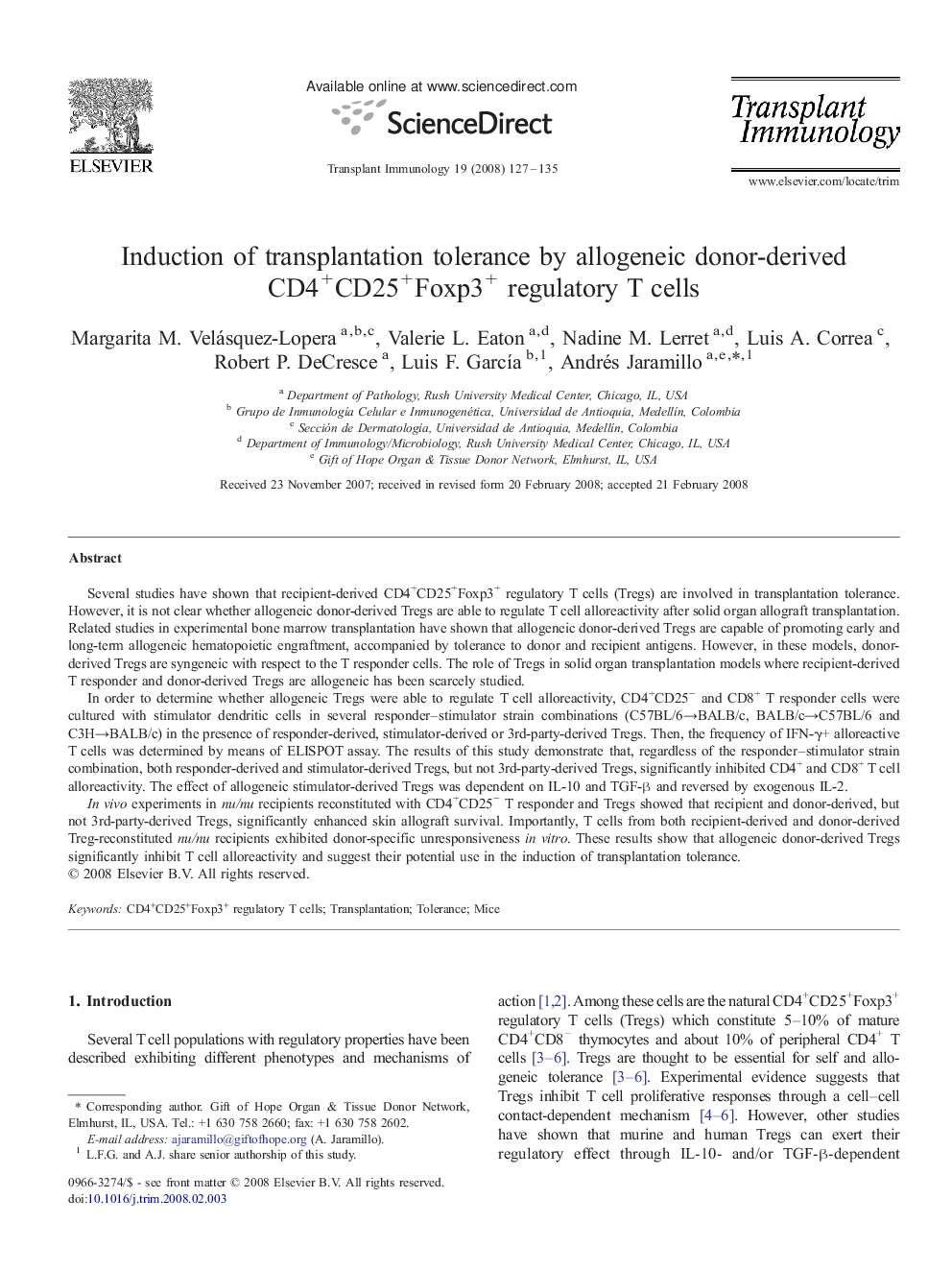| Article ID | Journal | Published Year | Pages | File Type |
|---|---|---|---|---|
| 3392464 | Transplant Immunology | 2008 | 9 Pages |
Several studies have shown that recipient-derived CD4+CD25+Foxp3+ regulatory T cells (Tregs) are involved in transplantation tolerance. However, it is not clear whether allogeneic donor-derived Tregs are able to regulate T cell alloreactivity after solid organ allograft transplantation. Related studies in experimental bone marrow transplantation have shown that allogeneic donor-derived Tregs are capable of promoting early and long-term allogeneic hematopoietic engraftment, accompanied by tolerance to donor and recipient antigens. However, in these models, donor-derived Tregs are syngeneic with respect to the T responder cells. The role of Tregs in solid organ transplantation models where recipient-derived T responder and donor-derived Tregs are allogeneic has been scarcely studied.In order to determine whether allogeneic Tregs were able to regulate T cell alloreactivity, CD4+CD25− and CD8+ T responder cells were cultured with stimulator dendritic cells in several responder–stimulator strain combinations (C57BL/6→BALB/c, BALB/c→C57BL/6 and C3H→BALB/c) in the presence of responder-derived, stimulator-derived or 3rd-party-derived Tregs. Then, the frequency of IFN-γ+ alloreactive T cells was determined by means of ELISPOT assay. The results of this study demonstrate that, regardless of the responder–stimulator strain combination, both responder-derived and stimulator-derived Tregs, but not 3rd-party-derived Tregs, significantly inhibited CD4+ and CD8+ T cell alloreactivity. The effect of allogeneic stimulator-derived Tregs was dependent on IL-10 and TGF-β and reversed by exogenous IL-2.In vivo experiments in nu/nu recipients reconstituted with CD4+CD25− T responder and Tregs showed that recipient and donor-derived, but not 3rd-party-derived Tregs, significantly enhanced skin allograft survival. Importantly, T cells from both recipient-derived and donor-derived Treg-reconstituted nu/nu recipients exhibited donor-specific unresponsiveness in vitro. These results show that allogeneic donor-derived Tregs significantly inhibit T cell alloreactivity and suggest their potential use in the induction of transplantation tolerance.
